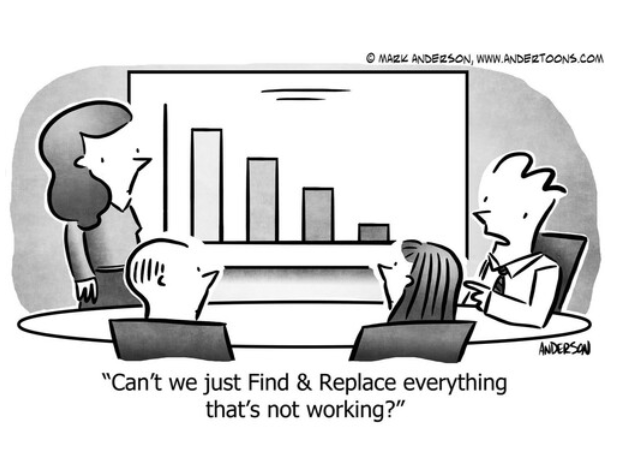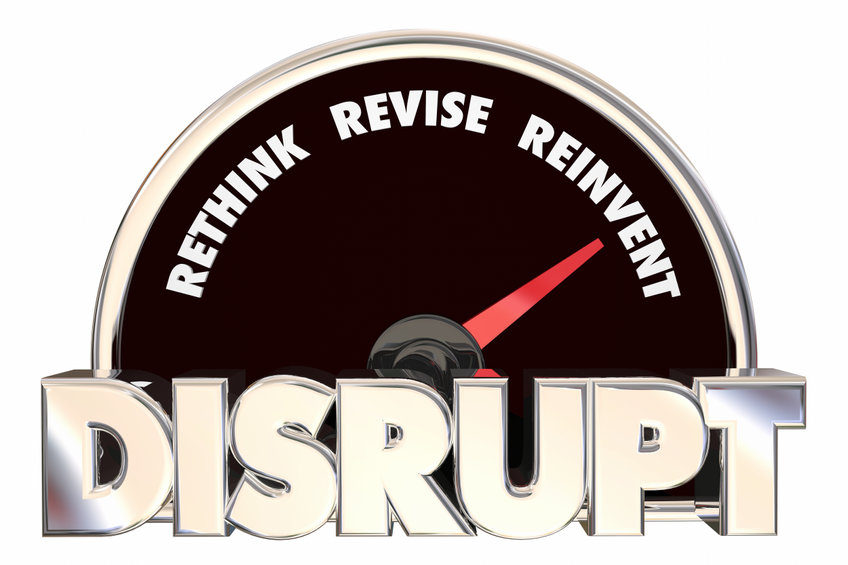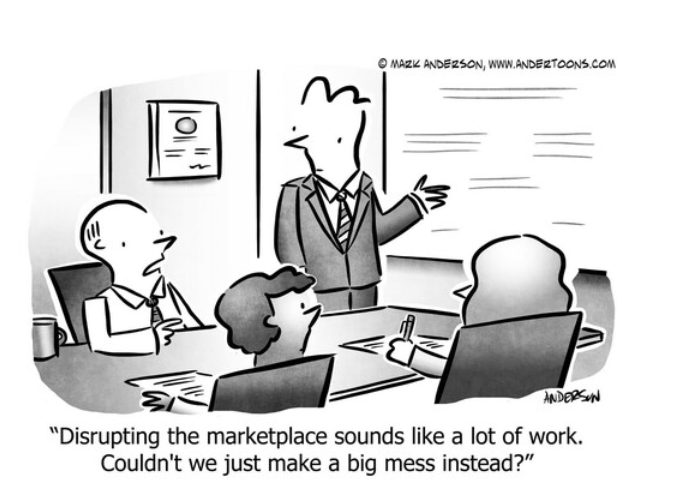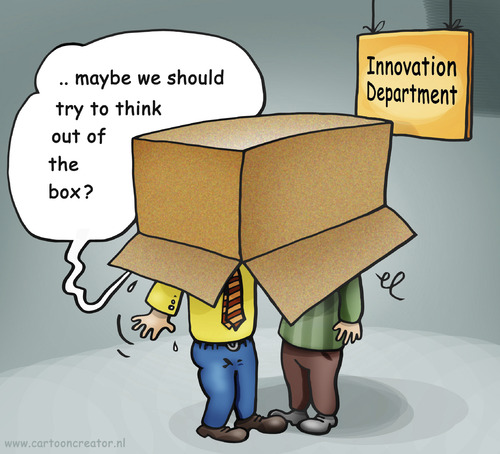Today’s business world continues to be quite challenging, regardless of how a company is faring in figuring out the post-COVID recovery.
While many CEOs have made changes to take advantage of new opportunities, others are still struggling to develop plans to enable them to continue to survive or to get back to pre-COVID profitability levels.
TIME FOR SOME DISRUPTION?
While some business owners will maintain an attitude of business as usual and others will make incremental changes that they hope will improve their business, there is an increasing sense that businesses must take an entirely different approach in planning for the future.
That is for businesses to adopt the philosophy of being a “disruptor” in their industry or business segment.
NOT A NEW CONCEPT …
While the term “disruptor” sometimes has a negative meaning, like chaos or confusion, the truth is that “business disruptors” have always been around.
Clayton Christensen, a Harvard Business School Professor, popularized the term “disruptive innovation” in 1997 through his book The Innovator Dilemma. He defined it as “a specific way that smaller companies can outcompete and eventually destroy their bigger rivals”.
There are many examples of such disruptors over the last century and in many cases, they were companies that no one thought had a chance to ever succeed.
For example, no one thought that the Model T Ford would replace the horse and buggy, or that Tesla could ever be commercially viable, or that eventually the electric car could conceivably replace combustible engines.
A DISRUPTOR’S MINDSET …
 We could go on and on with examples (think Amazon or Apple), however, it’s clear that whatever the prevailing current mindset has been, it has always been challenged and a better idea, concept or industry has often changed the way companies operate, or fail, if they don’t anticipate the changes needed to keep up.
We could go on and on with examples (think Amazon or Apple), however, it’s clear that whatever the prevailing current mindset has been, it has always been challenged and a better idea, concept or industry has often changed the way companies operate, or fail, if they don’t anticipate the changes needed to keep up.
In reality, not many small businesses can be a Tesla or an Amazon and disrupt an entire industry.
What they can do, however, is to adopt the mindset of a “disruptor” and establish plans for changing the way they do business with the idea of improving their competitive position in the market.
In our experience in helping many companies make changes to improve their business, this is easier said than done.
ARE YOU AFRAID TO CHANGE?
 Many companies are afraid of change, let alone making major changes, as they are concerned that change may not work. They are caught in the cycle of believing that “if its not broken, don’t fix it”.
Many companies are afraid of change, let alone making major changes, as they are concerned that change may not work. They are caught in the cycle of believing that “if its not broken, don’t fix it”.
Many other companies are willing to make changes, however, they are not successful as a result of not carefully considering the objectives or developing a realistic plan to accomplish them.
Furthermore, there are a lot of companies that claim to know where their industry is going, but few will take action and make the right investments in people and technology to bring those innovative ideas into reality.
COMMON SUCCESS FACTORS …
Companies that are successful in improving their competitive position in the marketplace have several things in common.
 First and foremost is a change in the culture of the company. In the process of planning to be a “disruptor”, it’s important to change the mindset of the people in the company.
First and foremost is a change in the culture of the company. In the process of planning to be a “disruptor”, it’s important to change the mindset of the people in the company.
As part of this effort, companies need to discover new ways to conduct business and empower their teams to share their ideas and take calculated risks.
Communication throughout the process is extremely important. The need for change and the way change will occur within a company must be communicated to everyone, frequently.
The management team must be on the same page on how change will take place and the expectation that everyone will be on board. This may be difficult, it may well be necessary to bring in new managers or staff that have had experience in driving change or innovation.
TIME TO THINK DIFFERENTLY …
Companies must also be willing to be somewhat uncomfortable in stepping out and trying a new approach to marketing, or the way they sell products, and be open to trying different tactics that may improve their position in the market.
That doesn’t mean initially taking radical risks, however, what it does mean, is to develop an outside of the box thinking in their approach to running their business.
Companies must not only plan for the desired outcome, but they must have definitive timelines and must also take swift action to implement these changes. Moving quickly is a mindset that must be an integral part of the culture change as well.
Businesses must decide whether they are willing to do what it takes to take on a disruptor mindset or run the risk that they may well be the ones left behind to face the consequences.
A status quo approach in business can only work for so long when competitors are innovating and trail-blazing new horizons around you.
Revitalization Partners specializes in improving the operational and financial results of companies and providing hands-on expertise in virtually every circumstance, with a focus on small and mid-market organizations. Whether your requirement is Interim Management, a Business Assessment, Revitalization and Reengineering, a State Receivership or Bankruptcy Support, we focus on giving you the best resolution in the fastest time with the highest possible return.





